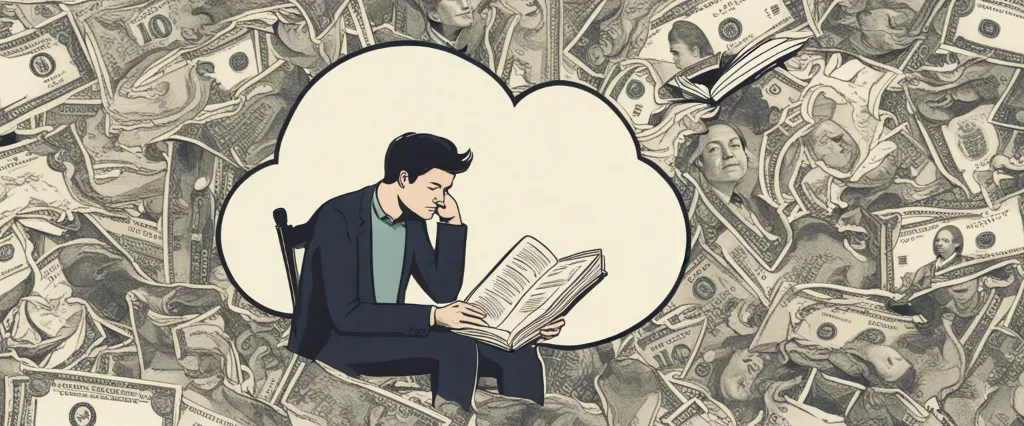Capital in the Twenty-First Century: Economics’ Eye-Opener Revealed


In an era of increasing income inequality and wealth concentration, the pursuit of economic prosperity has become a matter of global concern. Thomas Piketty, a renowned economist, addresses these pressing issues in his seminal work, Capital in the Twenty-First Century. With extensive research and rigorous analysis, Piketty delves into the factors driving economic inequality and presents a thought-provoking case for reevaluating the dynamics of wealth distribution. From examining historical trends to unraveling the implications of mounting capital accumulation, this article explores Piketty’s groundbreaking ideas, offering valuable insights into the challenges our society faces in shaping an equitable economic future.
What is Economics
Economics is a social science that studies how individuals, businesses, governments, and society make choices to allocate limited resources to satisfy unlimited wants and needs. It examines the production, consumption, and distribution of goods and services, as well as the behavior and interactions of economic agents, such as consumers, producers, and investors.
Economics analyzes various aspects, including supply and demand, pricing, production, distribution, investment, employment, inflation, taxes, and government policies. It uses economic models, theories, and data to understand and explain the behavior of markets and economies.
There are different branches and fields within economics, such as microeconomics and macroeconomics. Microeconomics focuses on individual economic units, such as households and firms, and examines their decision-making processes. It analyzes topics such as the determination of prices, market structures, and the efficiency of resource allocation. Macroeconomics, on the other hand, studies the aggregated behavior of the entire economy, including topics like economic growth, unemployment, inflation, and government policies.
Economics also explores the concept of scarcity, which refers to the limited availability of resources compared to the unlimited wants and needs of individuals and society. This scarcity necessitates choices and trade-offs, leading to the study of opportunity costs and how individuals and societies allocate resources efficiently.
Overall, economics plays a crucial role in understanding and informing economic policies, business decisions, financial markets, and individual behavior. It helps to analyze and solve economic problems, improve living standards, and promote economic growth and development.
Why is Economics Important to Us
Economics is important to us for several reasons:
1. Allocation of resources: Economics helps in understanding how resources such as land, labor, capital, and entrepreneurship are allocated and utilized in the production of goods and services. It provides insights into how resources can be efficiently and effectively utilized to meet the wants and needs of individuals and society as a whole.
2. Decision-making: Economics provides tools and frameworks for making rational and informed decisions, whether at an individual, organizational, or societal level. It helps in weighing the costs and benefits of different choices and enables individuals to make the best use of their scarce resources.
3. Understanding markets: Economics helps in understanding how markets work, the forces of supply and demand, and the factors that influence market outcomes. This knowledge is crucial for individuals and businesses to navigate the market successfully, make smart investments, and respond to changing market conditions.
4. Policy implications: Economics has significant implications for public policy-making. It helps policymakers evaluate the impact of various policies on different sectors of the economy, such as taxation, public spending, and regulation. A sound understanding of economics can lead to better-designed policies that promote economic growth, reduce inequality, and improve overall societal welfare.
5. International trade and globalization: Economics plays a crucial role in analyzing the benefits and costs of international trade and globalization. It helps us understand how countries can specialize in the production of goods and services where they have a comparative advantage, leading to increased efficiency and overall welfare.
6. Personal finance: Economics provides individuals with a framework for making informed decisions about personal finance, including budgeting, saving, investing, and understanding the implications of personal choices on their financial well-being.
In summary, economics is important to us as it provides insights into resource allocation, decision-making, market dynamics, policy implications, international trade, and personal finance. It helps individuals and societies make rational choices and improve their overall well-being.
Unlocking Economics from Capital in the Twenty-First Century
Capital in the Twenty-First Century Introduction
Capital in the Twenty-First Century” by Thomas Piketty is an influential work of economics that analyzes wealth and income inequality over the last few centuries and projects its implications for the future. The book’s central argument is that the inherent nature of capitalism tends to generate and amplify inequalities, wherein the rate of return on capital outpaces economic growth, leading to the concentration of wealth in the hands of a few. Piketty supports his thesis with extensive data and historical analysis from various countries, examining patterns and trends in wealth distribution. He emphasizes the impact of capital accumulation and inheritance, arguing that they perpetuate inequality and undermine meritocracy. Furthermore, Piketty proposes policy measures such as progressive taxation and a global wealth tax to address these disparities and ensure a fairer distribution of resources. “Capital in the Twenty-First Century” has sparked significant debates worldwide on the issues of income inequality, wealth concentration, and the future of capitalism.
Learning Economics Methods
In the book “Capital in the Twenty-First Century,” Thomas Piketty explores the dynamics of income and wealth inequality. While the book primarily focuses on empirical analysis and historical data, it also incorporates several economic methods. Some of the key methods mentioned in the book include:
1. Historical analysis: Piketty examines long-term historical data to understand the patterns and trends of income and wealth inequality over several centuries. This historical perspective allows him to identify recurring themes and develop an understanding of how inequality evolves over time.
2. Econometric analysis: The book extensively employs econometric techniques to analyze and interpret large-scale datasets on income and wealth. Piketty applies statistical methods to identify the determinants of income and wealth disparities and their impact on economic growth and social stability.
3. Data collection and aggregation: Piketty compiles and analyzes data from various sources, including individual income tax returns, wealth surveys, and historical records, to construct comprehensive and consistent databases. These databases are essential for conducting empirical analysis and exploring patterns of inequality across different countries and time periods.
4. Wealth and income distribution modeling: The book includes economic models that depict the distribution of wealth and income in capitalist economies. These models help assess the underlying factors driving inequality and examine the potential consequences for society.
5. Comparative analysis: Piketty compares different countries and regions to understand the variations in income and wealth inequality. By studying the experiences of different nations, he explores the role of economic policies, institutions, and historical factors in shaping inequality levels.
6. Savings and investment analysis: The book uses economic concepts to investigate the relationship between savings, investment, and the accumulation of wealth. Piketty examines the dynamics of capital accumulation and explores how differing rates of return on capital and labor income contribute to inequality.
These are just a few examples of the economic methods mentioned in “Capital in the Twenty-First Century.” Piketty combines historical analysis, econometrics, and comparative research to offer a comprehensive understanding of income and wealth inequality.
Capital in the Twenty-First Century Quotes
Capital in the Twenty-First Century by Thomas Piketty quotes as follows:
More Books About Capital in the Twenty-First Century by Thomas Piketty
1. “Open Veins of Latin America: Five Centuries of the Pillage of a Continent” by Eduardo Galeano – This classic work provides a comprehensive look at the exploitation and plundering of Latin America by imperial powers throughout history. With its deep analysis and powerful storytelling, Galeano’s book sheds light on the historical context that underlies the economic inequalities discussed in Piketty’s “Capital in the Twenty-First Century.”
2. Mastering the Market Cycle: Getting the Odds on Your Side” by Howard Marks – Although Howard Marks’ book focuses on understanding market cycles and investing, it complements Piketty’s work by exploring the role of financial markets in perpetuating economic inequality. Marks dives into market psychology and provides valuable insights into how economic cycles impact income distribution, making it an essential read for anyone interested in understanding the dynamics discussed in Piketty’s book.
3. Why Nations Fail: The Origins of Power, Prosperity, and Poverty” by Daron Acemoglu and James A. Robinson – Acemoglu’s book investigates the reasons behind the stark differences in economic development and wealth among nations. By analyzing the role of political and economic institutions, the authors offer an alternative perspective on the factors influencing inequality, which aligns with the broader themes explored in Piketty’s work.
4. “The Spirit Level: Why Greater Equality Makes Societies Stronger” by Richard Wilkinson and Kate Pickett – Drawing on extensive research and data, Wilkinson and Pickett’s book explores the relationship between income inequality and social outcomes. By analyzing various measures of inequality in different countries, the authors argue that higher levels of inequality lead to a wide range of societal problems. This book provides valuable empirical evidence that reinforces some of the key arguments made in Piketty’s work.
5. “The Price of Inequality: How Today’s Divided Society Endangers Our Future” by Joseph E. Stiglitz – Nobel laureate economist Joseph Stiglitz’s book analyzes the consequences of inequality on society and its potential harm to future generations. Stiglitz delves into the impact of inequality on economic growth, democracy, and social cohesion, offering policy recommendations for mitigating these adverse effects. While approaching the topic from a slightly different angle than Piketty, “The Price of Inequality” provides a thought-provoking exploration of the consequences of income disparity.



0 Comments